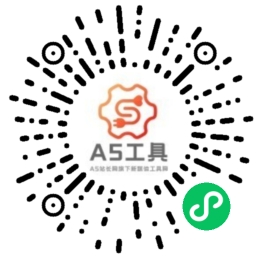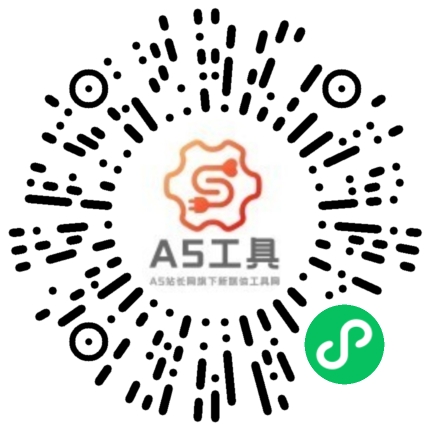AI智能:引领新纪元,我们如何平衡机遇与挑战?
2024-12-17 08:07
**The Ripple Effects of AI Intelligence: Navigating a New Dawn**
In the labyrinth of technological advancements, Artificial Intelligence (AI) stands as a beacon, illuminating paths we once deemed impossible. But as we march towards this brave new world, what are the ripple effects of AI intelligence on our societies, economies, and even our very essence? Are we merely passengers on this journey, or can we steer the wheel towards a future that harmoniously blends human ingenuity with machine prowess?
Consider this: by 2030, a study by Pwacom predicts that AI could add $15.7 trillion to the global economy. This staggering figure doesn't just hint at economic prosperity; it underscores a transformation so profound that it redefines industries, job markets, and lifestyles. Yet, beneath this shimmering surface, lie questions that beckon us to delve deeper. How will this economic surge be distributed? Will it bridge or widen the gap between the haves and have-nots?
The integration of AI into healthcare, for instance, promises personalized treatments and early disease detection, potentially eradicating illnesses that have plagued humanity for centuries. Imagine a world where AI algorithms, trained on vast datasets, predict and prevent health crises before they manifest. However, this utopia also poses ethical dilemmas: who owns our health data? How do we ensure privacy in an era where AI systems can analyze our every heartbeat?
Moreover, the workplace is undergoing a seismic shift. Automation, powered by AI, is reshaping job roles, making some obsolete while birthing new professions we can scarcely fathom today. The World Economic Forum reports that by 2025, automation will displace 85 million jobs globally, but simultaneously create 97 million new ones. This figure serves as a double-edged sword, prompting us to ask: are we equipping our workforce with the skills necessary to thrive in this AI-driven landscape?
Education, too, stands on the cusp of revolution. AI-tailored learning experiences promise personalized pathways to knowledge, catering to individual learning styles and paces. Yet, as we herald this era of digital literacy, must we also grapple with the specter of digital divide, ensuring that every corner of society has access to these transformative tools?
As we navigate these uncharted waters, it's crucial to recognize that AI's impact isn't monolithic. It's a complex interplay of opportunities and challenges, requiring us to strike a delicate balance. Are we ready to embark on this journey with eyes wide open, acknowledging both the potential for unprecedented growth and the need for ethical guardrails?
In conclusion, AI intelligence is not just a technological marvel; it's a societal crossroads. As we stand at this intersection, let us ask ourselves: what kind of future do we want to build? One where AI amplifies human potential, fostering equity, inclusivity, and ethical progress, or one where it exacerbates divisions, leaving a trail of unaddressed challenges in its wake? The choice is ours, and the time to act is now.
In the labyrinth of technological advancements, Artificial Intelligence (AI) stands as a beacon, illuminating paths we once deemed impossible. But as we march towards this brave new world, what are the ripple effects of AI intelligence on our societies, economies, and even our very essence? Are we merely passengers on this journey, or can we steer the wheel towards a future that harmoniously blends human ingenuity with machine prowess?
Consider this: by 2030, a study by Pwacom predicts that AI could add $15.7 trillion to the global economy. This staggering figure doesn't just hint at economic prosperity; it underscores a transformation so profound that it redefines industries, job markets, and lifestyles. Yet, beneath this shimmering surface, lie questions that beckon us to delve deeper. How will this economic surge be distributed? Will it bridge or widen the gap between the haves and have-nots?
The integration of AI into healthcare, for instance, promises personalized treatments and early disease detection, potentially eradicating illnesses that have plagued humanity for centuries. Imagine a world where AI algorithms, trained on vast datasets, predict and prevent health crises before they manifest. However, this utopia also poses ethical dilemmas: who owns our health data? How do we ensure privacy in an era where AI systems can analyze our every heartbeat?
Moreover, the workplace is undergoing a seismic shift. Automation, powered by AI, is reshaping job roles, making some obsolete while birthing new professions we can scarcely fathom today. The World Economic Forum reports that by 2025, automation will displace 85 million jobs globally, but simultaneously create 97 million new ones. This figure serves as a double-edged sword, prompting us to ask: are we equipping our workforce with the skills necessary to thrive in this AI-driven landscape?
Education, too, stands on the cusp of revolution. AI-tailored learning experiences promise personalized pathways to knowledge, catering to individual learning styles and paces. Yet, as we herald this era of digital literacy, must we also grapple with the specter of digital divide, ensuring that every corner of society has access to these transformative tools?
As we navigate these uncharted waters, it's crucial to recognize that AI's impact isn't monolithic. It's a complex interplay of opportunities and challenges, requiring us to strike a delicate balance. Are we ready to embark on this journey with eyes wide open, acknowledging both the potential for unprecedented growth and the need for ethical guardrails?
In conclusion, AI intelligence is not just a technological marvel; it's a societal crossroads. As we stand at this intersection, let us ask ourselves: what kind of future do we want to build? One where AI amplifies human potential, fostering equity, inclusivity, and ethical progress, or one where it exacerbates divisions, leaving a trail of unaddressed challenges in its wake? The choice is ours, and the time to act is now.
这篇关于《AI智能:引领新纪元,我们如何平衡机遇与挑战?》的文章就介绍到这了,更多新媒体运营相关内容请浏览A5工具以前的文章或继续浏览下面的相关文章,望大家以后多多支持A5工具 - 全媒体工具网!





